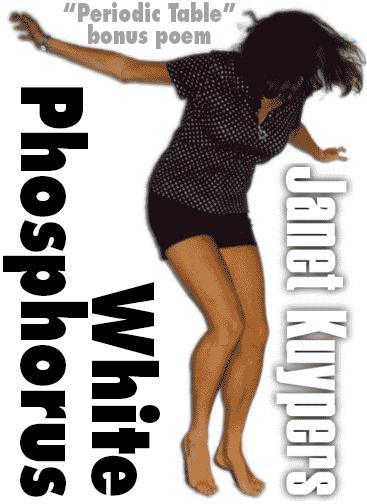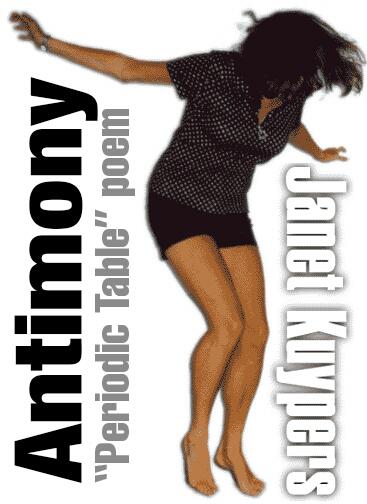White Phosphorus
Janet Kuypers

Bonus poem from the “Periodic Table of Poetry” series, #15, P
9/30/13)
Seeing bombs from Viet Nam
and the white smoke rising —
with each bomb exploding,
I knew
that smoke…
It was Willie Pete,
white Phosphorus —
you couldn’t put it out
once it started burning.
This stuff would
destroy the forests
foreign to our
U.S. troops.
I know you can’t understand.
But I wanted you to know
that I haven’t felt close
to anyone
or anything
in years.
It sounds sick,
but seeing that footage,
seeing that white smoke
from that file footage,
it brought it all back to me.
It brought the emotions
flooding back to me
like it was yesterday.
Everything that seems
so volatile
about that war,
in a way
has become a part of me,
right down to my DNA.
You look at your tv screen
and think it makes no sense,
but…
It’s a part of me.
I know I’m old now,
I know it’s only
a small part of me,
but I know I need it.
I can’t explain why,
but I do.
When you see the destruction
of Willie Pete…
Yeah, we knew what it was,
white Phosphorus,
but all of us called it that,
it was just easier
to say it then,
but…
When you see the destruction
of that white Phosphorus,
you think of it
on some existential level,
like “oh, violence is bad,”
but when I see those
bombs going off,
and when I think of
what it was like
to live in that war,
that Willie Pete —
that white Phosphorus —
to us, that was our key
to getting through that hell.
You can’t understand,
but that
was the closest we had
to getting out alive.

